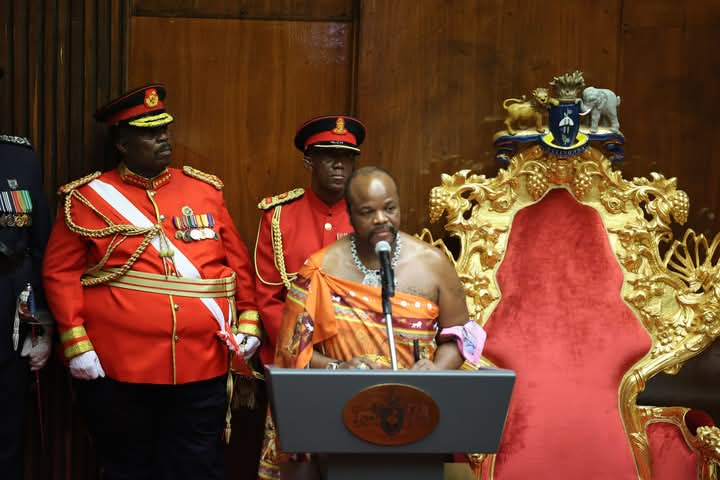
By Sizwe Dlamini
His Majesty King Mswati III is confident that Eswatini’s domestic economy will continue to grow despite rising geopolitical tensions around the world.
Making his remarks at the State Opening of the 2nd Session of the 12th Parliament, the King highlighted that recent macroeconomic projections predict an 8.3% increase in Gross Domestic Product (GDP) for 2025, up from 4.9% in 2024.
“The domestic economy is expected to continue growing largely due to resilience and a rebound from external factors, including rising geopolitical tensions and climate change. Recent macroeconomic projections predict an 8.3% increase in Gross Domestic Product (GDP) for 2025, up from 4.9% in 2024,” he said.
GDP is a measure of the total value of all goods and services produced within a country or region over a specific period, typically measured yearly or quarterly. GDP is used to gauge the economic health of a country, showing how much value its economy is producing hence when GDP grows, it generally indicates that the economy is expanding, and when GDP shrinks, it can signal economic problems.
His Majesty further highlighted the importance of key infrastructural projects in driving economic growth.
“The multi-billion Emalangeni Mpakeni Dam project, along with the completion of the Lubombo and Shiselweni road infrastructure and energy and mining projects, are expected to contribute significantly to Eswatini’s economic progress in the short to medium term,” His Majesty noted.
Furthermore, His Majesty, credited private sector expansion as a major factor behind Eswatini’s strong economic performance, positioning the kingdom as one of the top-performing states within the Southern African Development Community (SADC) in 2024.
“Eswatini has been able to perform well economically compared to other countries in the SADC region in 2024. Eswatini was one of the top-performing nations in this region in terms of economic growth and success, thanks in part to the positive impact of a strong private sector. However, to sustain this momentum, we should transform our business sector to create more job opportunities. It is time we improve the SEDCO model to turn communities into economic hubs through entrepreneurial development programs,” he added.
